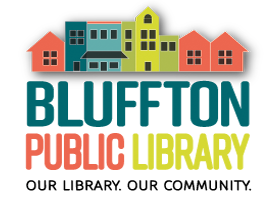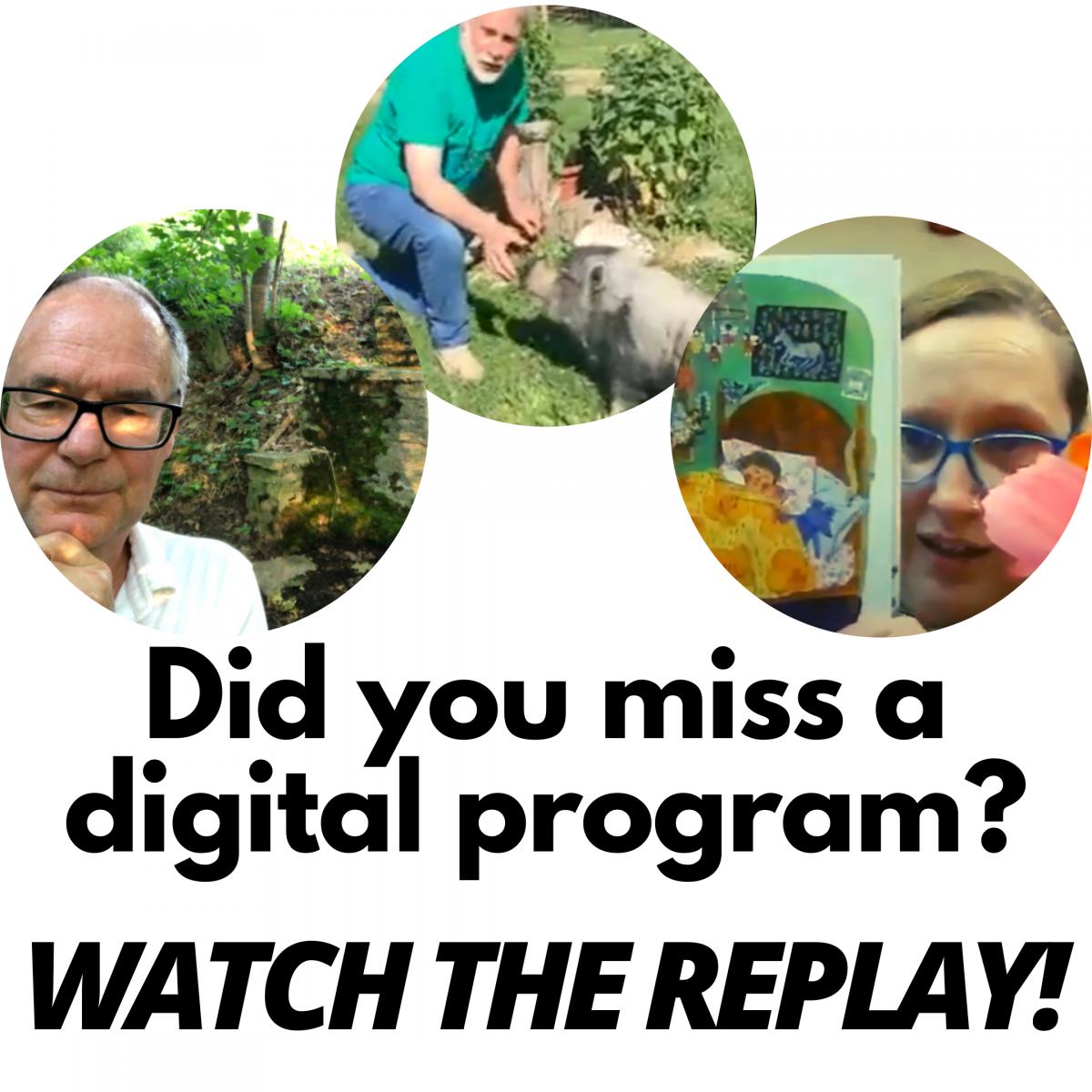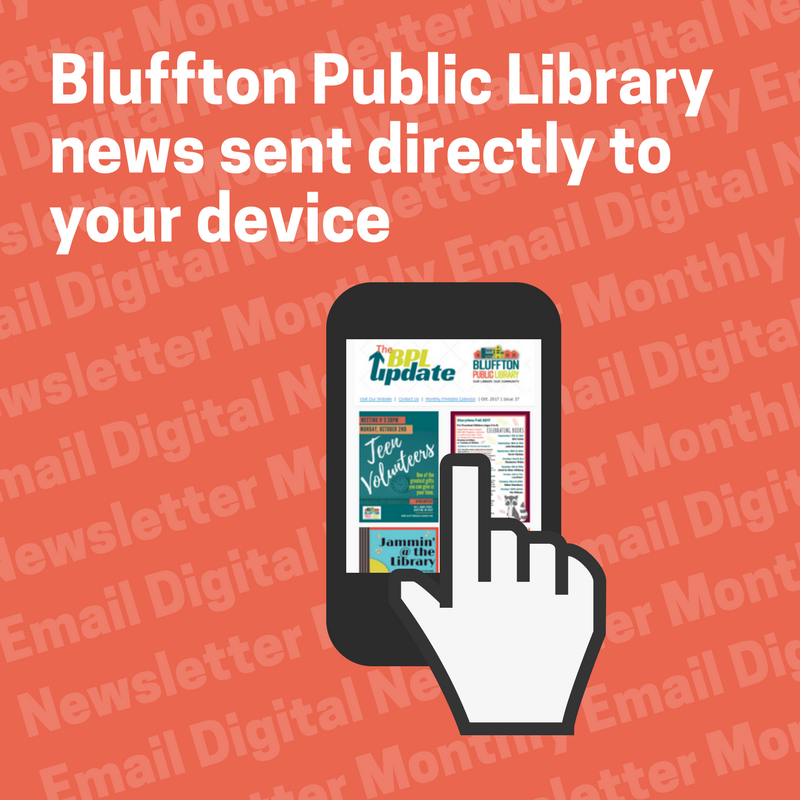
Full Internet Use Policy
Bluffton Public Library Policy: Patron Access to the Internet
The Bluffton Public Library, in keeping with the Mission of the Library to meet the informational needs of the diverse population residing in the Bluffton Exempted Village School District, endeavors to develop collections, resources and services to meet these needs. It is within this context that the Bluffton Public Library offers access to the Internet via the Ohio Public Library Information Network (OPLIN).
The Bluffton Public Library provides public Internet access to the resources of the Ohio Public Library Information Network (OPLIN) to its customers. This service may be used to access any resource, engage in any communication, or conduct any activity available on the worldwide Internet or the OPLIN provided such activity can be done with standard Web browsers, with these exceptions:
- You may not send, receive, or display text or graphics that may reasonably be construed as obscene or offensive to others.
- You may not use this resource for any illegal purpose.
- You may not in any way alter, reconfigure, or damage the public access workstations
- You may not use another’s library card.
- You may not modify or gain access to files, passwords, or data belonging to others.
- You may not seek unauthorized access to any computer system, or damage or alter software components of any network, host server, or database.
In order to promote fairness of use:
- Time will be limited to 35 minutes per session for Internet computers. If no one is waiting to use a computer, your session time may be extended by 15 minute increments (subject to limitations near closing time).
- Use is limited to 120 minutes (2 hours) per day.
Anti-Virus and disk protection software have been installed to preserve the exact original system configuration, to prevent viruses and to ensure that workstations will serve the greatest number of people. At the end of each session, any software installations, downloads or documents saved to the computer will be deleted.
The Library's OPLIN computers access the Internet, which is a global entity, with a highly diverse user population, and Library patrons use it at their own risk. As with other library materials, it is the parent or legal guardian of minor children who must assume ultimate responsibility for supervising access to Internet resources in the Library.
Library Patrons must have a valid library card within the SEO consortium with Internet privilege. Library account (regardless of home library) must be in good standing.
Adult visitors may obtain a Guest Pass with photo identification that shows a birth date. Guest passes are intended for occasional use.
Minor visitors may obtain a Guest Pass only when accompanied by an adult parent or guardian with an account in good standing. If parent does not have a library account, photo identification must be shown.
The use of OPLIN and the Internet to engage in any activity, which constitutes violation of local, state, and/or federal laws, is strictly prohibited.
Because this is a public resource, patrons must respect the rights of others and therefore are required to:
- Talk softly to avoid disrupting other patrons and/or staff.
- Set cell phone to “vibrate” and step outside to use phone.
- Have no more than more than two individuals at a computer provided that an extra chair is available and it is not a disruption to others. Disruptive behavior will result in discontinued computer use for one or both individuals. All minors at the computer must have an account that allows Internet access.
Misuse of the Library's OPLIN computers and/or Internet access will result in loss of Internet privileges and may result in loss of all library privileges.
DISCLAIMERS:
Information available through OPLIN and the Internet is not warranted by the Bluffton Public Library or OPLIN to be accurate, authoritative, factual, or complete. The availability of networked information via the Bluffton Public Library does not constitute the endorsement or ratification of that information. The Bluffton Public Library and OPLIN are not responsible for the content of networked information available.

